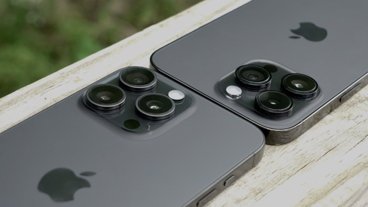Apple rumored to buy ARM Holdings
According to a report by the London Evening Standard, "Apple is ARM's biggest customer and speculation is that the iPad maker wants to take chip design in house."
After noting that shares in ARM had "shot up 8.1p to 251.1p," the report cited a trader as saying, "A deal would make a lot of sense for Apple. That way, they could stop ARM's technology from ending up in everyone else's computers and gadgets.â€
The report added "traders reckon a bid would come in at around 400p a share, valuing ARM at more than £5.2 billion [$8 billion US]."
Apple originally founded ARM in a 1990 partnership with UK computer maker Acorn and chip fab VLSI Technologies. At the time, Apple was interested in adapting Acorn's new RISC processor for use as a mobile processor in the company's new Newton Message Pad.
As Apple discontinued the the Newton line in the late 90s, chief executive Steve Jobs began selling Apple's shares of ARM in an effort to balance the company's books. Apple returned to ARM processors with the iPod in 2001, and has consistently used ARM processors ever since in its iPods, recent AirPort wireless base stations, the iPhone, and iPad.
Apple appears to have acquired chip designer Intrinsity in order to accelerate the ARM Cortex A8 to 1GHz speeds. Were Apple to buy ARM, it could leverage a great deal of power over the market for mobile and embedded processors chips, the vast majority of which are based on licensed ARM designs.
Currently, Apple pays royalties for ARM's chip designs used in its products. If the company acquired ARM, it could conceivably raise licensing costs to rivals or even take ARM designs off the market. Competitors to ARM in the mobile arena, including Intel's Atom processor family, are not nearly as power efficient.
Similar to Intrinsity and PA Semi, ARM only licenses its chip designs and technologies to other companies that actually build the chips.
 Daniel Eran Dilger
Daniel Eran Dilger










 Marko Zivkovic
Marko Zivkovic
 Amber Neely
Amber Neely
 Christine McKee
Christine McKee
 Malcolm Owen
Malcolm Owen
 Mike Wuerthele and Malcolm Owen
Mike Wuerthele and Malcolm Owen

 William Gallagher
William Gallagher








